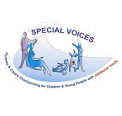Upton Court Grammar School

Upton Court Grammar School is a mixed, selective school in Slough, Berkshire. Places can only be offered to students who have been deemed of selective ability by their performance in the 11+. The eligibility mark as stated in the Admissions policy is 111.
Progress 8 figures issued by the Department for Education propelled the school up the league tables to the top ten. These tables review the performance of almost seven thousand schools in England and, this year, Upton Court Grammar School is ranked in ninth position. The key to our students success if the belief in excellence in teaching and learning supported by Quality First Teaching and a bespoke enrichment and cross curricular provision. The right balance of focus on the academic and the personal development of our young people.
Who to contact
- Contact name
- Marium Rafiq
- Contact position
- SENDCo
- Telephone
- 01753 522892 01753 522892
- mrafiq@uptoncourtgrammar.org.uk
- Website
- Upton Court Grammar
- Scan to visit this website
Where to go
- Name
- Upton Court Grammar
- Address
-
Lascelles Road
Slough
Berkshire - Postcode
-
SL3 7PR
Find SL3 7PR on a map
Time/date details
- When is it on
- Weekdays 8-5
Local Offer
- Contact name
- Miss Marium Rafiq
- Contact telephone
- 01753522892
- Contact email
- office@uptoncourtgrammar.org.uk
- Local Offer age bands
-
Secondary (11-16 years)
Transitions to Adulthood (16+)
Schools extended Local Offer response
- Special Educational Needs policy
UCGS is a mixed secondary grammar school which has academy status and a selective entrance test. There are around 1200 students on role and we have had experience of admitting a wide range of students with additional needs and disabilities.
As a Grammar School we are unlikely to receive students with generalised, moderate or severe learning difficulties but it is recognised that some have specific learning difficulties. Other students may have a variety of needs such as physical disabilities, sensory impairment, medical needs, mental and emotional health difficulties, social communication and interaction difficulties, autistic spectrum disorders as well as some behavioural difficulties.
UCGS values the abilities and achievements of all its students, and is committed to providing for each, the best possible environment for high quality, differentiated, teaching and learning. Our aim is that every student has the opportunity to fulfil his/her potential and succeed in developing socially, emotionally and academically.
Our SEND policy builds on our School’s inclusive ethos, which recognises the entitlement of all students to a balanced, broadly based curriculum. Our SEND policy reinforces the need for high quality teaching that is fully inclusive and differentiated to meet the needs of all young people.
Where students fail to make adequate progress, despite high-quality teaching targeted at their areas of weakness, the class teacher will work with their department and Head of Year eand 6th Form Teams as well as the SENCO/DSW where needed to assess whether the child has a specific learning difficulty or need. Where this is the case, then there will be agreement about the specifc support that is required to enable that child to make progress. Relevant referrals will be made for additional assessment and/or support as required from outside agencies.
Parents will always be informed should their child be considered in need of further assessment, support or SEND interventions.
The process will follow the SEND model of; assess need, plan intervention and support, do - by putting into place what is required followed by regular review.
Please see the following policies on Upton Court Grammar school website at for further information:
- The full SEN policy (this should be informed by and include reference to the 2014 Draft SEN Code of Practice) Curriculum policy
- Equality Duty
- Behaviour policy
- SEND Report
- Complaints policy
- Teaching and learning
Most CYP’s needs will be met without the need for an Education, Health and Care Plan (EHCP). A student may be identified as having a Special Educational Need (SEN) at any stage during his/her educational career. This may be a long term difficulty requiring continuing support or a short term difficulty requiring a specific intervention.
Information about your child’s special education need comes from a number of sources:
- Primary school liaison for Year 7 transfer
- Cognitive Abilities Tests
- Edinburgh Reading Test
- Half termly assessment and review
- Teacher feedback or concern
- Pastoral monitoring
- Head of Year or Head of department concern, raised through teaching staff
- Parental concern
- Student self-referral
- SENCOreview
- DSW (Director of Student Welfare) review
At UCGS we believe in setting aspirational targets for all students, including those with SEND and use differentiated approaches and lesson planning to ensure that the needs of all students can be met and that they can make good progress. We employ targeted use of non-teaching support in class and to support small groups to support teaching and learning. We use the pastoral and SEND teams to run small groups which improve the social, emotional and mental health of all students.
- Identifying and assessing Special Educational Needs
We are very keen for young people and their families to be fully involved in discussion around their learning and progress. We encourage any family member of students at UCGS to contact the school and ask to make an appointment if they suspect that their child may have a special education need or disability that has not been previously identified, or diagnosed.
School teaching and support staff will support individuals at a level appropriate to their needs through effective differentiation in the classroom as well as small groups and 1-1 support as required. The SENCO aims to ensure the fullest possible access to the curriculum for students on the SENCO register. This may include support from outside agencies such as E.P., specialist teachers for UI, HI, ASD and SPLD, CAMHS, SEBDOS, SIYS, School nurses, social care and physiotherapists or occupational therapists. The provision is reviewed regularly to ensure it addresses the needs of current students.
This process of support at UCGS will follow the pattern of:
- Assess the need;
- Plan the support;
- Do – put into action the interventions agreed;
- Review – to ensure that the interventions are appropriate and are helping the student make the necessary progress towards their aspirational targets.
If they fail to make the required progress with interventions, further discussions will take place with all parties involved to decide what the next step will be in the process. This could involve further referrals or interventions.
AT UCGS we recognise the necessity of specialist and individually implemented interventions to support the achievement of children who are looked after by the LA (LAC/CLA) with SEND and make provision for them in terms of admissions, pastoral care and differentiated teaching and support as required so that they can reach their potential socially, emotionally and academically.
- Involving parents and children/young people in planning and reviewing progress
All students who have been identified as having SEND will have a Pen Picture, which outlines strengths and difficulties and relevant strategies that will help teachers ensure that these students are able to make good progress towards their aspirational targets. Pen Pictures are written with students and their families to ensure that they reflect the needs of the young person and the details of strategies that will support them to make good progress. Pen Pictures will be reviewed regularly with students and their families to ensure that they reflect their on-going needs.
The SENCO will contact the parents and will conduct the reviews and discuss provision and any adjustments needed. The SENCO will also advise teaching staff about the agreed strategies to support the student in mainstream lessons and will liaise effectively with teaching assistants who are working with the designated students.
Reports that families may receive could include:
- Academic Reviews
- Annual Review
- School reports
- Pastoral reports and reviews
- Merits, success assemblies, prize giving ceremonies
- Parents’ evenings
- Parent portal
- Pen Pictures
- Care plans
- Educational Psychology reports
- Specialist teacher reports
- CAMHS reports
- Sensory Needs reports
- Speech and Language reports
- Emotional and Mental Health reports
- Social communication reports
Students with an Education, Health and Care Plan will also have an Annual Review Meeting and outside agencies will be invited to attend. Specialist reports will be provided for these meetings.
Teaching staff enter assessment data on every individual on a half termly basis. This ensures that there is always relevant and up to date information on the level that is currently being achieved by each student. In addition to this, the Head of Year and 6th form teams review targets and progress. The SENCO reviews the data to monitor the progress of SEND students in all key stages.
Parents will receive regular termly formal attainment reports from all subject teaching staff. In addition to this, there are the parents’ evenings which provide an opportunity to meet with subject staff and discuss progress. The SENCO will also be available at parents’ evenings for consultations.
All teachers aim to ensure the fullest possible access to the curriculum for students with SEND by offering high quality teaching and differentiation. The provision is reviewed every year to ensure it addresses the needs of current students. Where appropriate, awareness training is carried out at the start of each academic year to enable staff to be fully aware of the needs students with SEND.
The provision map offers strategies for support. This will include additional internal support and external agency support. Some sets are smaller to allow greater teacher input in some subjects and differentiation to meet individual needs.
In Key Stage 4 and 5, special considerations for access arrangements are put in place to ensure that students are able to achieve their maximum potential in examinations.
Differentiation is seen as a priority in all lesson planning and in additional provision, and is supported by the SENCO who works with teachers to help them fully support all students. Effective differentiation will enable all students to participate fully in all aspects of learning and to make the best possible progress.
All students are supported by the pastoral teams and their tutors. In addition, students with SEND may be included in social communication programmes, behaviour management sessions, speech and language groups, literacy support, mental and emotional health support.
Interventions may include any of the following:
- Sixth form mentors
- KS4 mentors
- CBT
- Pastoral Rewards
- Behaviour Plans
- Celebration Assemblies
- Liaison with outside Agencies
- Stress Management
- School Counsellor
- Input from Sensory support services
- Behaviour Support
- Care plans and management of medicines
- Senior school and 6th form management support
- Pastoral Team support
- SEND support
- CAMHS
- Family support and therapy
- School nurses
- Educational Psychology
- SEBDOS
- SIYS
- Physiotherapy and/or Occupational therapy
- Social care
- CAFCAS
- Domestic Violence support
- Charity Support Agencies
- Transition plans and support
- Careers advice and support
- UCAS support sessions and mentors
- Well-being Days
- PCR support
- Early help and Tier 2 support
Help, support and advice is available on the school website and VLE
Where students have an EHCP, they and their parents will be directly involved in target setting, decision making about the provision that needs to be made and in reviewing the progress. They have a key role as partners in securing progress and will be encouraged and enabled to make their views known wherever possible. This feedback may come through informal calls or emails as well as regular meetings with the teacher and/or SENCO/DSW, and formal (statutory) review processes.
- Additional support
UCGS arranges and provides various types and degrees of support that, in addition to high quality teaching, will meet the needs of young people with SEND in the four broad categories, communication and interaction; cognition and learning; social, mental and emotional health; and sensory and/or physical needs.
There are teaching and support staff who have considerable experience in teaching children with dyspraxia, dyscalculia, sensory and physical impairments, behavioural difficulties, Autistic Spectrum Disorders, ADD and ADHD and specific learning difficulties, medical needs and disabilities, mental and emotional health concerns, and social communication difficulties.
The specialist services available within school include and from outside agencies include:
- Educational Psychology Service
- Educational Welfare Service
- School Nurses
- Speech and Language Service
- Virtual School
- Child and Adolescent mental Health Service
- Sensory Support Service
- Daisy’s Dream
- Careers
- Social Care
- Occupational Therapy
- Independent Counselling
- Physiotherapy
- Specialist Teachers for ASD, SPLD, and sensory needs
- CAMHS
- SEBDOS
- SIYS
- AbilityNet UK - Equipment & Aids
- Dyslexia centre and British Dyslexia Association
- BIBIC
- Destiny Support
- MIND
- NSPCC
- CEOP
- ADDISS attention deficit disorder Information and Support Service (ADDISS)
- SCOPE
- Sensory consortium services
- Slough Service for Autism
Parents will be involved in the planning of any additional support in any of the following ways:
- Planning meetings and transtion meetings at the start of each year
- All students in the school have termly reports and parents’ evening to meet subject teachers. They also have academic review day each year.
- Parents may also contact any of their child’s teachers or tutors directly using the email address given on the school website
- If a child has SEND, he/she will be placed on the SEND register and families will be invited into school to discuss provision to address the special educational needs. Every child with SEND will have his/her progress monitored by the SENCO, who will meet both the child and family to discuss progress and plan further support.
- Pen Pictures are written to support children with SEND in school and these are shared with families. They contain information about the student’s special educational needs, appropriate provision and interventions, advice for teaching staff, and strengths and areas of difficulty.
- In addition students with an Education, Health and Care Plan will have a multi-professional Annual review which looks carefully at progress towards the learning objectives.
- There is advice and resources for supporting your child with independent study on the VLE and available directly from the school.
Training for teaching and support staff with regards to young people with special educational needs is considered essential. This training and support forms part of CPD for every member of school staff.
It will include the following over time, Specific Learning Difficulties, general learning difficulties, Autistic spectrum disorders, ADD and ADHD, Hearing and Visual Impairment or multiple impairment and English as an Additional Language, Disability Awareness, medical needs, speech and language, mental and emotional health, social communication needs and looked after children and those who face safeguarding concerns.
Written advice and guidance is available to support all aspects of SEND training.
In addition, there is specific training in:
- Emotional Literacy including self-harm, eating disorders and stress management,
- Child Protection including forced marriages, sexual exploitation, FGM, domestic violence, FII, Faith abuse and radicalisation
- First Aid and emergency procedures for medical conditions.
- Looked After Children
Specific training for the SEND team, which is in line with the teaching staff, includes all of the above and forms part of their CPD, as it does for all staff.
We currently have a visiting specialist teacher in Specific Learning Difficulties who supports our students each week as well as with access arrangements and assessments for special consideration in exams.
We have a school counsellor available via self-referral, SEND or Pastoral team or through family concerns raised.
We have regular weekly visits from our EP who sees young people through referral from the SENCo/DSW.
For admissions please see the admission arrangements on the website. All young people must sit the entrance exam and reach the required standard before they could be considered eligible for a place at UCGS. SEND will not be considered a reason to refuse to offer a place at UCGS.
Upton Court Grammar School is mindful of the need to safeguard the well-being of all students and management of first aid arrangements will be undertaken in such a way as to ensure there is adequate training of staff, provision of first aid equipment and recording of first aid treatment. Please see policy.
In the Year 7 Induction pack, there is a letter which explains our procedures for the administration of medicines. Parents are requested to complete the ‘Request for School to Administer Medication’ form and return it to the school office where this will be entered into the medication log. Epi pens are kept in the school office for students with copies of their care plans. Asthma inhalers are kept with the primary first aider. Students are encouraged to carry emergency medication on their person as they grow up. A log of regular medication is kept. Care plans are put in place in consultation with parent/carer for all students with medical needs. The Care Plan outlines arrangements for administration of medicines and provides advice for teaching staff and those arranging trips. Children with Care Plans are listed under the section medical needs which ensures that teachers are aware of the child’s specific need.
- Extra activities
Most students with additional needs are supported and encouraged to be fully involved in all areas of school life. All clubs and visits are open to them and individual arrangements are planned in advance to ensure that they are able to participate.
There are many extra curricular activities available at school including sports clubs, acts and drama, social and emotional development and nurturing as well as academic clubs such as debating and games such as chess and war hammer.
For students with medical/physical needs, any issues around visits and activities will have been discussed and addressed with parents. For students with SEND, individual issues will have been discussed with the parents and the SENCo/DSW. Reasonable adjustments will be made to ensure that students with SEND have the same opportunities as their peers.
- Meeting social and emotional needs of children/young people
As a school we recognise that there are young people who have difficulties with emotional, social and mental ill health needs. These young people need support to ensure they develop and make good progress. Some young people live in difficult and stressful circumstances who may or may not have SEND but who may express their needs through withdrawn behaviours, have difficulty making and sustaining friendships or can present with oppositional or controlling behaviours. These young people can be identified by the form tutor, pastoral teams, SEND team or class teachers. We use SDQs and wellbeing profiles to determine their difficulties and to define what support would be appropriate. This may be in the form of therapeutic intervention on a 1-1 basis, small group work, nurture groups, counselling, CBT or other appropriate support sessions.
There is a clear Behaviour Code, with rewards and sanctions, within the school which all staff and students are expected to follow. The pastoral teams and tutors provide individual support and guidance for students who may be struggling to manage their own the behaviour. This is supported by the Heads of Year, and a team who support students to manage their behaviour in individual sessions and small group work.
We have a zero tolerance policy on bullying and take steps to prevent it from happening in the first place by building a sense of community, belonging and responsibility to combat bullying and/or discrimination. Our behaviour policy follows a common sense approach giving staff the power to differentiate sanctions and rewards as appropriate. For further information please see the UCGS behaviour and anti-bullying policies on the website.
There are student surveys which invites all students to consider and express their concerns and ideas in a positive way. The School Council is a committee of students who meet regularly to represent the views of their tutor group peers in a meeting with the pastoral teams.
Students are involved in every discussion about their progress and the planning of next steps.
- Keeping up to date with knowledge and skills
Training for teaching students with special educational needs is considered essential and forms part of every member of Staff’s CPD each year. Training will be available to cover the following areas of SEND; Specific Learning Difficulties, Autism, Hearing Impairment, Visual Impairment and English as an Additional Language, Sensory Support, Disability Awareness, medical needs, speech and language, mental health, social communication needs and every child matters in teaching and learning and differentiation.
In addition, there is regular training in:
Emotional Literacy including self-harm, eating disorders and stress management,
Child Protection including forced marriages, sexual exploitation, FGM, domestic violence, FII, Faith abuse and radicalisation
First Aid
Looked After Children
Specific training for the SEND team, is in line with the teaching staff, includes all of the above.
We currently have a visiting specialist teacher in Specific Learning Difficulties who supports our students each week with access arrangements and assessments for special consideration in exams. She is also able to support staff training in this area of expertise.
Our school counsellor and EP are also able to offer specific staff training on attachment, metacognition, SIP and other specific learning needs and social and emotional wellbeing.
Students and their families are encouraged to be directly involved in discussions about and planning for their education, learning and personal development. Some of the ways that this is accomplished are outlined in section 4&5:
Most students with additional needs are supported and encouraged to be fully involved in all areas of school life. All clubs and visits are open to them and individual arrangements are planned in advance to ensure that they are able to participate. For students with medical/physical needs, any issues around visits and activities will have been discussed and addressed with parents. For students with SEND, individual issues will have been discussed with the parents and the SENCo and DSW. Reasonable adjustments will be made to ensure that students with SEND have the same opportunities as their peers.
There is clear signage and colour coded maps are available to assist students’ movements around the school. Advice has been taken from the Sensory Advisory Service and from Dyslexia association to ensure a high a standard of safety and accessibility as possible.
The school is undergoing major building works and development. In some of the older building where there are two floors these remain inaccessible to wheelchair users as there are no lifts, this is overcome by using timetable changes. We have new building developments which allow for a huge increase in the physical accessibility of the school as these buildings are fully accessible.
We are able to produce printed materials in various formats to increase the accessibility of the written word. We are able to offer the services of interpreters in a number of languages to help break down barriers in communication with families.
ACCESS:
All specialist science labs will be accessible. English can be taught in specialist rooms on the ground floor. Maths is taught in the new block which is fully accessible
ICT suites are all accessible in the new building
An ICT suite is available in the Sixth Form Centre for 6th formers and additional laptops are also available where needed
The library is upstairs but there is a lift
Languages can be taught in the ground floor accessible rooms or the upstairs in specialist rooms via the lift
Technology specialist rooms are all on the ground floor and are accessible.
Printed materials can be created in different formats.
Laptops are available for students who need them to make class notes and/or homework and for access arrangements in exams
Humanities can all be taught in accessible ground floor rooms.
New facilities for PE that are planned will enhance reasonable adjustments for disabled students to be able to take part in lessons and extra-curricular activities.
Specialist art rooms are in the new build and are fully accessible.
Accessible toilets and changing facilities are available.
- Transitions
We gather a lot of information about every child in order to make the best possible preparation for joining Upton Court Grammar School and make a successful transition between phases of schooling and education and training or a place of work. We collect information from the following sources:
- Close liaison with the primary schools during the summer term or before transition if out of phase or term.
- Every child has a form filled in by the primary school, or secondary school where they transfer from, which has sections relating to the SEND. These are reviewed by the pastoral teams, admissions officer and DSW.
- CATs testing take place in September allow us to have baseline assessment on which to build
- Reports from other agencies or professionals that are already supporting your child
- Contact with parents/carers and wider family where necessary
- Information from the child themselves, no one knows their needs better than them.
Students who are on the SEND register see the Specialist Careers Personal Advisor (PA) where possible in Years 9, 10 and 11 who guides them through the transition process. The SENCo provides the new setting with information about the student’s SEND requirements if they transfer to another setting.
Those students who chose to apply through UCAS for higher education or to colleges for further education will be supported through the process by the 6th form team and SEND team.
We aim to address the needs of each of our students and target resources to meet the needs of the students with SEND that will enable them to achieve their full potential and make successful transitions in life at each stage. This may take the form of support in lessons or 1-1 support to assist with physical tasks or planning and organisation. Small group and 1-1 support sessions are planned and organised according to the need of each individual.
The decision making process is informed by the data and information received from the previous setting. This, alongside current assessments, is discussed with the student and parents at relevant meetings with the SENCo. As a result of these meetings, a programme to address the child’s needs is agreed until the next review period. The programme will have targets specific to each child which are central to the ensuing relevant provision and support is available in the future when required.
The needs of each student on the SEND register are very carefully reviewed and considered for the coming year and at each stage of transition. This information is considered through the provision map which informs our allocation of support. In this way, we endeavour to address the needs of each individual with a specific programme of support and high level teaching.
- Helpful contacts
Please see out website for further information and all relevant contacts.
Last updated
Last updated - .
Disclaimer
This information has been collected from third party providers. Slough Information and Services Guide and Slough Borough Council cannot accept responsibility for the accuracy of this information and recommend that parents, carers, young people, residents and professionals check with providers regarding DBS (Disclosure & Barring Service), OFSTED and CQC registrations.





